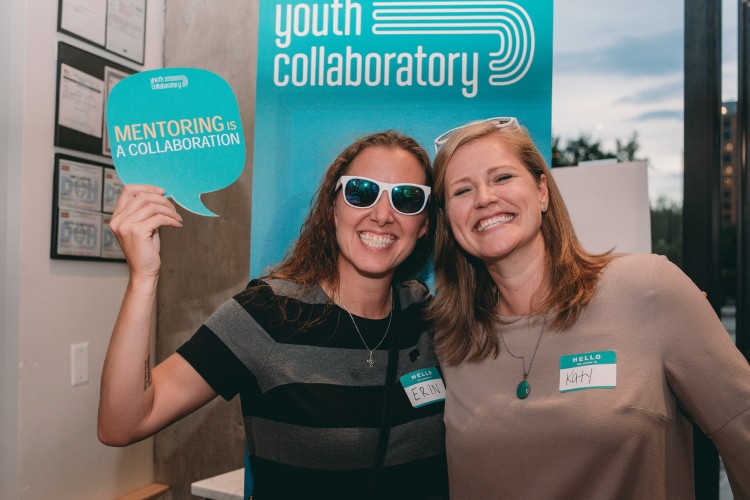
To access the toolkit home page, click here. To visit other modules, check out the Related section below.
Messaging and marketing are key for any mentoring program, but perhaps even more so for rural programs. From recruiting mentors to raising funds to support the agency, messaging and marketing are the activities that keep you in the public eye. Marketing is the action or business of promoting your services, and includes market research and advertising. Messaging addresses the written and verbal statements that quickly describe what you do and how you’re different from other agencies and programs. Messaging can include an elevator pitch, the way you develop your program brochures, or the messages you use when talking about the program at recruitment events, to community members, and to program participants.
“We always try to keep our message simple. We emphasize that there are no superpowers to being a mentor, and that we give them tools they need to be successful. We include a call to action and let people know how to contact us.”
- Kathy Schwartzhoff, the Mentoring Coordinator for Helping Services for Youth & Families in Decorah, IA
One key to creating powerful messaging for rural markets is to be direct and clear about what you’re asking. Kathy Schwartzhoff, the Mentoring Coordinator for Helping Services for Youth & Families in Decorah, IA, says of her recruitment messaging, “We always try to keep our message simple. We emphasize that there are no superpowers to being a mentor, and that we give them tools they need to be successful. We include a call to action and let people know how to contact us.” It’s important, too, to consider what impressions you’re creating about your program and the people you serve through your recruitment and marketing materials. Avoid using terms like “at-risk” in your marketing materials. Terms that connote negative impressions of the youth and families you serve not only turn off potential volunteers, but can also discourage mentees from participating. When you’re creating or redesigning your materials and messaging, remember that every youth can benefit from a mentor, and that young people and their families are not defined by their needs as much as by their strengths. Consider going through a framing process or using a message box to create compelling messages about your program and target populations that will resonate with volunteers, families, funders and the community as well.
Once you’ve established your message, planning your recruitment strategies is key. Creating a written recruitment plan for both mentors and mentees will allow you to carefully think through your strategies, keep tabs on actions and relationships you need to stay on top of, and evaluate your efforts to determine which are successful and should be maintained, and which might not have worked so well, and can be tweaked or discarded altogether. “We have been lucky enough to be a Youth Collaboratory subgrantee and we use the Youth Collaboratory recruitment plan,” Laura Laabs, Grants Director at Greater Wyoming Big Brothers Big Sisters in Laramie, WY, says. “It’s helped us to target civic groups, schools, businesses and others, and to tailor our messages to those specific audiences.” The Youth Collaboratory plan is included in this toolkit, and can be used for either mentor or mentee recruitment. It also provides space to plan out various strategies for recruitment that go beyond the typical broadcast methods of posters, flyers, PSAs or social media. While these tactics are great for creating awareness of programs, they are not always effective at translating that awareness to actual applications. Often, smaller presentations or one-to-one recruiting provides more intentional and effective recruitment. Laabs has recently begun to do more one-to-one asks when recruiting, and has seen great results. “When we look at our recent metrics, we noticed that we have about half as many inquiries as last year – but the [number of mentors that follow through] has increased from 29% last year to over 50% this year. This is because we’re being more intentional about messaging and recruiting, and shifting to more intimate conversations and smaller groups with folks. This allows us to guide conversations more explicitly, and we get a feel for the volunteer’s interest and level of commitment.” Another messaging issue specific to rural communities is privacy. When you live in a community where everyone knows everyone else, how do you ensure your mentees’ privacy? The answer is through training, and through messaging. “If you’re talking about your mentee when you’re out in public, it’s possible that that mentee’s uncle is in the next aisle at the store,” Chad Butt, Executive Director of Mobius, Vermont’s Mentoring Partnership, says. “We want mentors to be recruiters, but we ask mentors to talk about positive things that a parent would be proud to hear.” In training Butt says that mentors learn that if they are having challenges in their match, rather than talk with their friends or family about it they should reach out to match support staff. Tina McGuinness, Executive Director of Gunnison Valley Mentors in Gunnison, CO, seconds this approach. “During mentor training we teach mentors to think before they share any information publicly,” she says. “They should question themselves about whether the statement they’re about to make [to friends or family] is a criticism, or is it constructive? Would it benefit the mentee’s development, or is it negative?” Mentor training that covers privacy and confidentiality can go a long way to ensuring that even in a small community, everyone’s privacy is respected.
Relevant Resources
For this section, we’ve created or identified tools around reducing stigma, messaging, marketing and volunteer recruitment.


